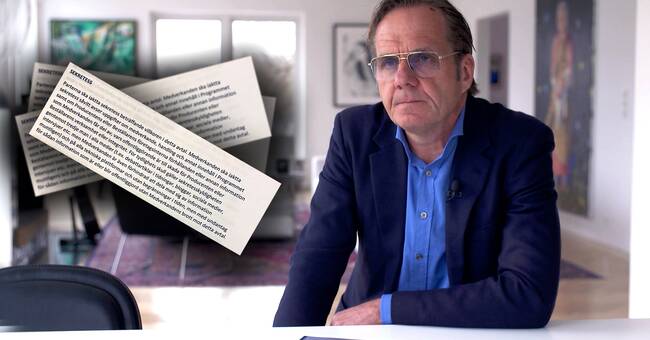Former participants testify about repeated sexual harassment and harassment in Swedish reality soaps.
The productions behind programs such as Paradise hotel and Big brother are criticized for not taking the problem seriously.
At the same time, several previous participants with whom we have been in contact dare not speak openly about their experiences.
The reason: the secret contracts.
Risks heavy fines
SVT has read agreements from previous seasons of various reality soaps.
The general rule is that the participants may not reveal anything about their participation or about the contract itself.
- It covers in principle everything and restricts one party's opportunities to report misconduct.
A confidentiality clause must not be used, says Jens Tillqvist, a lawyer specializing in employment law, when he sees one of the agreements.
In the video, you can see how Jens Tillqvist reacts when he gets to read one of the agreements.
Paradise hotel participants have previously been threatened with damages of more than SEK 100,000 per violation if they violate confidentiality.
Dag Wetterberg, a lawyer specializing in media law and freedom of expression, does not believe that the television companies would get their claims for damages through.
- I think it's a scare tactic.
I have a hard time seeing that a production company could drive that process and win, he says.
- The production company has copied a secrecy clause that is common in business and pasted it into a completely different contractual relationship that applies to a large company and an individual.
It does not fit together.
Will change the routines
Matilda Snöwall, CEO of the production company Mastiff which is behind Paradise hotel, writes in an email to SVT that the purpose of the confidentiality clause is to keep the outcome of the competition secret and that the fine has now been reduced.
"We will spend more time working with the participants to review the agreements, what their legal significance is and what their purpose is, all to make the participants feel safe when they enter the program," she writes.
May not have a partner
The contracts that we have read are several pages long and contain a number of rules of conduct and requirements for the participants.
For example, how to manage their social media before, during and after the program.
That they must guarantee that they are not married, engaged, have a partner or children who are not known for the production.
They must also certify that they have not been diagnosed with, or received treatment for, any physical or mental illness.
- Legally, it may be possible to write like that, but it does not feel ethically correct.
It may be pushing forward very sensitive information.
I think it is directly inappropriate, says Dag Wetterberg.

